T.M. Franklin is the author of Twelve, the action-packed conclusion to the MORE Trilogy.

Her subject for today's Writing Lab lesson is:
-x-x-x-x-x-x-
Five Things Writers Have to Learn to Do that Have Nothing to Do with Writing
You’ve written the story, gone through the editing process, approved a gorgeous cover, and your release day is approaching. Now it’s time to sit back and wait for the sales numbers to roll in. Right?
Right.
Or not.
It’s nice to think that if you write a great book, the audience will find it. There is some truth to that, of course. But most of us in the indie publishing world have had to learn along the way that there’s much more to publishing than writing and editing. In the years since MORE was published, I’ve had to learn a few things that actually have very little to do with writing – but have proven invaluable when it comes to marketing and promoting my books. Here, in no particular order, are five of them.
HTML – It’s Swell!
Okay, maybe “swell” is pushing it, but learning a little basic HTML coding is very useful. If you’re trying to work with bloggers on promotion, making things as easy as possible for them increases your chances of getting featured on their blog. And presenting your post in a ready-to-go HTML format, so they can just copy, paste, and post, does just that.
You don’t have to be a computer whiz to do this. There are a number of free HTML converters available online. You just copy and paste your document, add your pictures (hosted on a site like Photobucket) and convert it into an HTML document.
However, it does help to know a little about how HTML works. For example, HTML tags normally come in pairs like <b> and </b>. The first tag in a pair is the start tag, the second tag is the end tag. The end tag is written like the start tag, but with a slash before the tag name. This particular pair of tags would put the text between the tags in bold font.
So if you wrote this in HTML: <b> This text would be bold.</b>
It would appear like this: This text would be bold.
If you wrote this in HTML: <i>This text would be in italics.</i>
It would appear like this: This text would be in italics.
There’s a lot more to it than this, but again, Google is your friend. Search for basic HTML tags or even specifics like “HTML code for embedding video” and give it a try.
Discounts & Distribution
There’s something so exciting about seeing your book on a bookstore shelf for the first time. But, as anyone who’s been in the business for a while can tell you, it’s easier said than done. I’ve been lucky enough to have a few local Barnes & Noble stores that are supportive of independent authors, but that’s the exception rather than the rule. Indie bookstores are often a better option, but there are some things that can help ease the way with them as well. The first is to work at building a relationship with indie store owners – stop by and chat, drop off an ARC or at least some bookmarks, talk to them about your books, etc. But really, we all have to remember that bookselling is a business, and bookstores are in it to make money, so in the end, it all comes down to whether your book will be profitable, and distribution plays a big part, as well.
For Barnes & Noble to carry your book, it first has to be in the Barnes and Noble system. There are a number of options for this – for example, Createspace offers Expanded Distribution, which includes availability on the B&N website. However, carrying the books in the brick and mortar store is an entirely different thing – and generally, it’s up to the store manager.
Most other bookstores require (or at least greatly favor) books that are available with a standard discount (generally 40%) and full returnability through a distributor like Ingram or, in my area, Partner’s West. The returnable option is key because it assures the bookstore owner that the books can be returned if they don’t sell.
This has been a challenge to indie and self-published authors in the past, but Ingram recently introduced IngramSpark, which offers these terms. Again, however, this only eases the way. It’s still up to the bookstore owner or manager to decide if your book is worth the time and money to stock.
Making the Sale
I can hear the protests already. “B-b-but I’m not a salesperson. I’m an artiste!” I’m afraid it’s true, though, authors have to learn to sell their books – whether online or at in-person events. To put it bluntly, most people will have never heard of you or your books, so if you want to sell any, you’ll have to be able to tell people about them.
Yes, it can be uncomfortable. But I’ll share a bit of advice my editor gave me at my first author event: Don’t think of it as selling yourself. Think about selling this great book that you read that you think other people might enjoy.
Get up out of the chair. Smile at people. Offer them a bookmark and ask them what kind of books they like to read. Listen. Then tell them about your book and hand them a copy so they can read the back or skim the first few pages. If you have a well-written blurb and compelling first scene, sometimes that will be enough to seal the deal.
Not always, of course. Sometimes people will hand it back and walk away. That’s the way it goes. But take heart – there’s another prospective reader just around the corner.
Argh! Here There Be Pirates!
This is probably the most frustrating, irritating, infuriating thing about being an author – the people who think it’s absolutely fine to offer pirated copies of your work for free, and the people who think it’s just as fine to download them.
It’s easy to get bogged down in it, to be honest. Some of these sites get taken down, only to be back up again under another URL within an hour. It’s like Hydra – cut off one head and two more pop up in its place. (Yes, I might have watched Captain America recently. Again.)
There is no winning with these people, so my advice is to try and keep it in perspective. When you find a piracy site, report it, send a DCMA takedown letter or ask your publisher to do so. You can even hire a service like Muso to track down the pirates for you.
Then let it go. Get back to writing. You can spend all of your time searching for pirated copies of your work, but it’s just not worth it.
Some Readers Won’t Like Your Book
I’m afraid it’s true. We want everyone to love our stories, but guess what – it ain’t gonna happen. It might help to go check out the one-star reviews for J.K. Rowling. (Yes, they exist!)
We all like to read different things – and I know I’ve loved books my friends have hated and vice versa. It’s difficult to accept because writing is such a personal thing, but someone not liking your book is not a personal attack. It’s an opinion.
Another editor shared this advice with me: The people who hate your work are not your audience. The people who love it are.
So try to focus on that – and write your stories for them. Good luck!
-x-x-x-x-x-x-
Thank you, TM Franklin! You gave us plenty of food for thought!
- Raum
As always, your comments are welcome.




















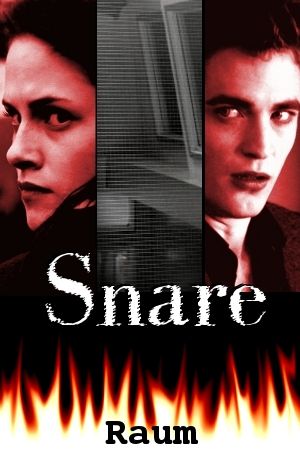



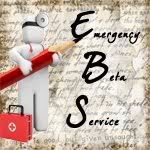
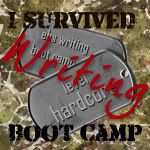
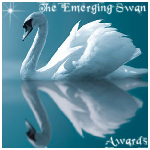
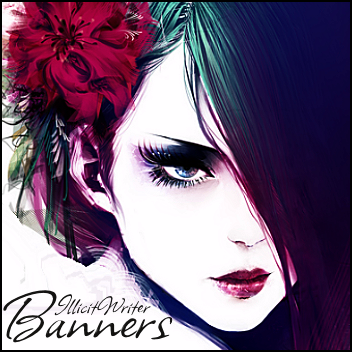

0 comments:
Post a Comment